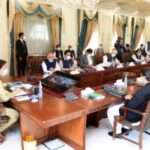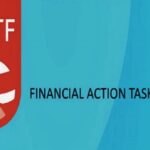ISLAMABAD: Competition Commission of Pakistan (CCP) on Tuesday issued show cause notices to 19 poultry feed companies for collusive activities and entering into prohibited agreements.
A statement issued by the commission stated that it had taken suo motu notice of the concern and complaints regarding a concurrent increase in the feed prices and initiated an enquiry.
Data gathered from market sources showed that there was indeed a simultaneous increase in price by poultry feed mills and the average quantum of increase in price also appeared to be similar, which raised suspicion of collusive decision making and violation of Section 4 of the Competition Act, 2010.
The CCP said that from December 2018 to December 2020, the feed mills colluded to raise the poultry feed prices by Rs825 per 50 kilogram bag, thus making feed 32 percent costlier for the poultry farmers. “Moreover, data from the Pakistan Bureau of Statistics (PBS) for September 2020 shows that chicken prices rose by 18.31 percent and eggs by 5.2 percent. The rise in these prices coincided with an increase in feed prices by almost Rs100 per bag.”
In October 2020, the CCP said, after another price increase by poultry feed mills by Rs125 on layer and 175 on broiler feed, the chicken prices rose by 26.62 percent and eggs by 23.81 percent as compared to the previous month. In November 2020, the poultry feed prices rose again by Rs150 per bag, and the prices of chicken and eggs rose by 20.76 percent and 5.23 percent. In December 2020, another price increase in poultry feed by Rs250 per bag caused prices of chicken and eggs to rise by 3.21 percent and 14.08 percent, respectively.
Moreover, the CCP said, multiple sources shared the concerns that some of the top poultry feed mills were meeting at different locations and fixing the feed poultry feed prices. Therefore, exercising its powers under Section 34 of the Competition Act, 2010, the CCP on February 04, 2021 carried out search and inspection of two major poultry feed mills based in Rawalpindi and Lahore to impound the proofs of their suspected involvement in collusive activities and collective fixing of poultry feed rates. Two authorized team of the CCP conducted the inspection and successfully impounded the relevant record including computer-stored information.
“The impounded record revealed that officials of 19 feed mills were using an active WhatsApp group where one feed producer would announce its intended price increase and the rest expressing and sharing their willingness to follow suit.
“These discussions and decisions were implemented on the ground, as evidenced by the official price lists of these companies.”
The CCP said that based on the examination and review of the documents/material impounded during the raid, the enquiry report has been concluded.
According to the enquiry report, from December 2018 to December 2020, the poultry feed mills have acted in a collective manner to fix the price of poultry feed, which constitutes a prima facie violation of Section 4 of the Act.
Moreover, while poultry feed companies produce the poultry feed which are mostly located in Punjab, the feed is sold/supplied to poultry farms in Sindh and KPK to meet their requirements and therefore given the inter-provincial movement of poultry feed, any anticompetitive effects would have a spillover effect throughout Pakistan.
The feed companies have been called upon to show cause in writing within 14 days and to appear and place before the commission for hearing. Once the CCP’s bench concludes the hearings, it will pass the order under Section 31 of the Act.
The CCP said if proven, Section 4 violations entail a penalty of Rs75 million in case of a business association and up to 10 percent of the annual turnover or Rs75 million penalty in case of a company/business entity. The companies against whom proceedings are underway can also compete for leniency (reduction in or waiver of penalty) under the CCPs Leniency Regulations subject to provision of additional substantial information or evidence and acceptance by CCP.







